Recently, in commenting about the death of Jimmy Buffett, I had occasion to remark a bit about the dark side of Florida, especially as it pertains to boomers. I’ve been pondering a lot about my native state since then, and thought perhaps to give those curious about Florida a bit of insight into what I mean about the bad and good aspects of the Sunshine State. Florida is a unique place; in a country defined by its frontier culture, Florida remains something of one to this day, though in a way that requires some explaining. In doing so, I hope to shed some light on some things that might be mysterious to outsiders.
By the way, IM magazine published an entire issue on the theme of Florida, and the essay “Florida Man vs. The Last Man,” by Isaac Simpson, is particularly good, painting a portrait of the archetypal Floridian as a kind of redneck anarch, unbeholden to the pieties of outsiders. If you are interested in the subject, it’s worth a read. For my part, I can vouch for this as an authentic characterization, though with the caveat that, when one goes to Florida, one should very much not assume that the people you meet are Florida Men. To be such is a matter of birth and cultivation, and Florida Men are a surprisingly rare breed even in their natural habitat.
This is from a CNN story. Florida Man does not know CNN is making fun of him, because he doesn’t watch CNN. Neither does anyone else. Florida Man is ahead of the curve yet again.
Only about 36% of Floridians are native born, and as a good number of them have apostatized into foreign (Yankee) ways, one might assume only 1 in 10 fit the bill. Uncommon though he is, one knows him when one sees him. He has adapted to the climate, rarely wearing clothing so encumbering as shoes or sleeved shirts. His skin has the color and texture of a burgundy leather couch, and if he is older than thirty it will have as many creases as well. His whole life is spent outdoors to the degree he is able, as he has inherited the pre-AC cultural preference for catching breezes over open water to the shade of a roof. Water is very much in his blood. While Yankees might think this means ocean, and indeed it can, Florida man is as amenable to river, lake, or swamp as he is salt life. For the working-class Florida man, which is the only type (middle-class jobs preclude sunshine), the indisputable symbol of success is the boat, be it motor, pontoon, sail, or other, which serves as the center of recreational life. Water is life for Florida Man, and death; it is bass and alligators, it is gentle (sometimes daily) rain and ferocious hurricanes. He makes sport of the water’s dangers, not always to his gain. His taste for outdoor living and embrace of physical work makes for a surprisingly hardy physique belied by his preference for beer, cigarettes, and fried food. Florida Man often presents with a lithe and wiry frame, which, coupled with his lank hair and unhurried nature, can give one the impression of a scarecrow made from car upholstery.
That unhurried nature is characteristic of Southerners generally, but Florida Man, as befits him, manifests this in his own way. It is hot in the South, and people move slowly. There is nothing in traditional Southern life like the manic energy of a place like New York, and but neither is there the “chill” culture one sees in sunny California. Southerners move at a more deliberate pace, but always with some sense of purpose. The conversations one has with near strangers, which can seem mystifyingly involved to Yankees, are to the end of intelligence gathering, fortifying social norms, and furthering feuds, all of which hold Southern society together. Florida man, in the hottest of hot places in the US, takes all of these a step further. His intelligence gathering has a practical edge; not trusting the lamestream media (he does have an unfortunate tendency to adopt normiecon clichés) he puts great stock in the opinions of his neighbors, particularly regarding medicine or politics. Social norms involve presenting as and assessing the status of others as independent-minded but regular folk who do not put on airs. Being full of oneself is profoundly un-Floridian, and one advertises this status by decorating one’s home and person with symbols of irreverence and even defiance. It is not uncommon to find Florida Man’s home adorned with a flag inviting Joe Biden to commit a sex act with himself; if Florida Man lived in an HOA neighborhood -which is a contradiction in terms, but bear out the thought experiment- he would certainly require that such be displayed at all times in all yards. His feuds can be arcane and slights are long remembered. Florida Man can be surprisingly on his dignity and, despite his casual attitude, bears the typical workingman’s animosity to those he deems lazy, freeloaders, or unhelpful. Florida Man is not a beach bum, or any other kind of bum.
While the full-blooded Florida Man is rare, I would say that all of those born in Florida or raised by Floridians adopt at least some of these traits. I can state for a fact that while I am too white collar to be a true Florida Man, I bear much of his character. My classroom features portraits of Robert E. Lee and Andrew Jackson; dip bars, a pull-up frame, and heavy steel clubs sit next to shelves stocked with Evola, Guenon, Gomez-Davila, and an inviting biography of Yukio Mishima. Looming over me as I type is a deer skull, taken from a huge buck that ran off the road and crashed against my mother’s house some years ago. Construction paper paeans to “believe and achieve” are not part of the aesthetic. I work from dawn to dusk with the same energy I would bring to pruning palm trees, were fate different. Whenever I can, I steal away to the closest lakes to hike and swim. And of course, whenever I can, I make my way to the motherland.
Florida has always been a place on the edge of American life. It was a kind of side quest to the main event of the settlement of America, a frontier that existed even during colonial days. People forget that Florida belonged to Britain at the time of the Revolution, though no one seems to have given much thought to inviting anyone there to join as the fourteenth United State. This can perhaps be explained by the fact that for most of colonial history Florida had been a menace to British North America. Indeed, Florida was one of the reasons for Georgia, the latter created in part as a buffer state between what was then a foreign place full of Spaniards and Indians and the wealthy Carolinas. James Oglethorpe, governor of Georgia and former general, led a full invasion of Florida at one point, famously besieging St. Augustine. After the Revolution it reverted to Spanish control and again was the locus of problems. Indians pushed from their lands, runaway slaves, and white renegades from all over joined forces as the Seminole tribe, launching bloody raids into the expanding US. This became an even bigger issue after the War of 1812, when many of the defeated Muskogee made their way south from Alabama, joined by British traders and mercenaries with the connivance of the Spanish. Andrew Jackson, fresh from his victory at New Orleans, made the entirely personal decision to invade and conquer Florida, an act granted ex post facto legitimacy by the Monroe administration in the Treaty of Adams-Onis. Florida cost the US $5 million dollars, which even accounting for inflation was a steal. That fact would only become clear later, however.
To this diplomatic process Andrew Jackson personally contributed exactly zero f***s.
Florida began its life as part of the US as a mostly agricultural part of the mostly agricultural South. Ranching was a huge part of life then, and unbeknownst to most, remains so to this day, with nearly half of Florida’s farmland given over to raising cattle. Apart from that, there was cotton, and with that came slavery; Florida Man is as likely to be black as white, and there is a considerable cultural overlap between the races in that regard. It is important to note that much of the later evolution of Florida Man has its genesis in a general country Southerness adapted to particular Florida circumstances. In many ways, Florida is still a very rural state. Outside of the very southern parts one can easily drive ten or twenty miles inland from any coast and find oneself in farmland. Heavy population areas are scattered, and there is a great bloc, starting in the panhandle and making its way down to around Gainesville, where the people and places are sparse.
Such would still be the case today were it not for the kind of frontier Florida represented and continues to represent. Moving west, one encountered natural barriers than one surmounted naturally, or at least, as one’s ancestors had done. Virgin land was plowed, towns were built, laws were laid down, and native resistance was crushed. The technological innovations of the Industrial Revolution expedited the process, but it would have been possible with the gear the Pilgrims possessed.
Florida represented a different kind of challenge, a land wholly inhospitable to normal people, with weather and climate that promised to wreck man’s works. To begin with, there was the stifling subtropical heat. Then there were the mosquitos, which spread nasty diseases like malaria and yellow fever. Hurricanes would wipe out any infrastructure with frightening regularity. These hazards meant that people could not live in Florida in large numbers as they did in, say, Colorado, or even North Dakota. Men can warm themselves far more easily than they can cool themselves, and storm cellars are not something one can build in a state where the highest point is at 345’ elevation.
Florida, like space or the deep sea, is a frontier conquered by, and contingent upon, modern science and big government. It is not a coincidence, I think, that both space and ocean figure so powerfully in Florida life; they are a part of the same mission. From the railroads that kicked off the periodic land booms to the medicine and civil engineering that defeated the swamp diseases to FEMA and the federal highway system that mitigates the threat of hurricanes, Florida as presently constituted is not so much a place as it is a project, not so much settled as terraformed, turned into a fit habitat for normies by means of air conditioning and water treatment centers. The overwhelming majority of the people who live in Florida would flee if those things were not things anymore; only Florida Man, that hardy aborigine, could remain (the actual aborigines would do fine as well, of course). And this is at the root of the problems of life in Florida, what sucked in so many boomers and continues to destroy many in the present.
In the esoteric religion of Theosophy there is a concept called the Summerland. This is a type of heaven, reached by those of high spiritual calling, but at the same time is nebulous and temporary. Theosophy, which holds metempsychosis as a doctrine, teaches that one leaves the Summerland when one reincarnates back into human life. Florida is in this sense a Bardo, a Dreaming. The promise of Florida is a new life, unencumbered by the drudgery of colder climes, a playground made possible by the wonders of science.
Surely you’ve felt it. I was born there, but still, when I cross the line south from Valdosta or Waycross I sense the change. The pines start to give way to palms, the sky is somehow bluer. The air changes and no matter how far inland you are you sense the presence of the ocean. I feel as though I’m somewhere where life is different, where the warmth of the sun ignites some kind of chemical change.
Things seem easier, more fun somehow, even the stuff of daily life. I spent large periods of this past summer doing yard work for my dad, who lives near Melbourne. Even in the high 90s, in the middle of the day, it somehow wasn’t unpleasant. There was an odd sense of freedom; my necktie was a memory, my shirt dispensed with. It took only a couple of days, like Chaucer’s Yeoman, to turn brown as a nut. I took to walking everywhere, even though my car worked fine. In the early mornings I trekked three miles just to sit at Dunkin Donuts for a view of the Indian River. When my chores were done I made my way inland to some of the state’s wonderful parks, hiking for hours. I seldom noticed the passage of time, and I never felt rushed or uneasy. Something stirs in my blood on those trips.
But I can imagine a different path, how that sense of warm and languid ease could lull one into a spiritual sleep, how coming to love that sort of life could invite dangers that could consume the unwary. It all seems so secure, in this Earth-bound moon-colony-triumph of scientific engineering, with rockets regularly blasting off overhead, biological and geological forces held at bay, the system ready to spring forth to sweep away the debris of disasters and rebuild lives. It is a friendly place, none friendlier. Florida loves its visitors, nearly 100 million a year. It lives off of them, smiles at them, serves them, takes their money, and bids them farewell. For those who stay, for those who mistake the party for the life, well, it eats them.
The Florida man of the news is seldom an actual Florida Man. He is generally made of weaker stuff, a creature of appetite from some colder place, seeking in the Sunshine State a life he could never know at home. That life is not really possible in Florida either, but not everyone sees that. The parties, the beaches, the bare skin and ease of manners, it all works like a lure to a sea bass. Or rather, like a pitcher plant, with cloying sweetness that draws in those with an insectoid need to consume. And then they drown, digested by those warm waters, homeless and alone, mind fried and long since written off by even their hardest partying companions. They have no place here; Florida Man does not recognize him as part of his ecosystem, and his organic relations are far away and forgotten. He slipped from his Dreaming but did not awake, and he crossed over from his Summerland, not into new life, but the cold earth. And be assured, even in Florida, the graves are cold.
There are members of my family who know Florida only as a place of horrors, where once promising sons and daughters destroyed themselves and others, the scene of horrible crimes against women and children. When I wistfully speak of moving there they react with real anger. I don’t blame them. Still, I feel the call even now. Whenever I cross the border, I have a tradition that I play one of my favorite vaporwave tracks, “Tropical Somnium” by Incorporeal Visions Deluxe. My own dream will call me home one day. Unless fate intervenes, I will pass away under the same sun I was born, watching the sea and sky meld together in the blue horizon, the waves lapping at the sands, those ground down stones and shells of eons past, all those things that bear silent witness to that ultimate truth, that man’s mastery of nature that makes Florida possible will one day fail, that the storms and creatures he thought he had tamed will reassert themselves once more, and all that will remain of his cities and monuments will be vine-covered ruins. That, and Florida Man.





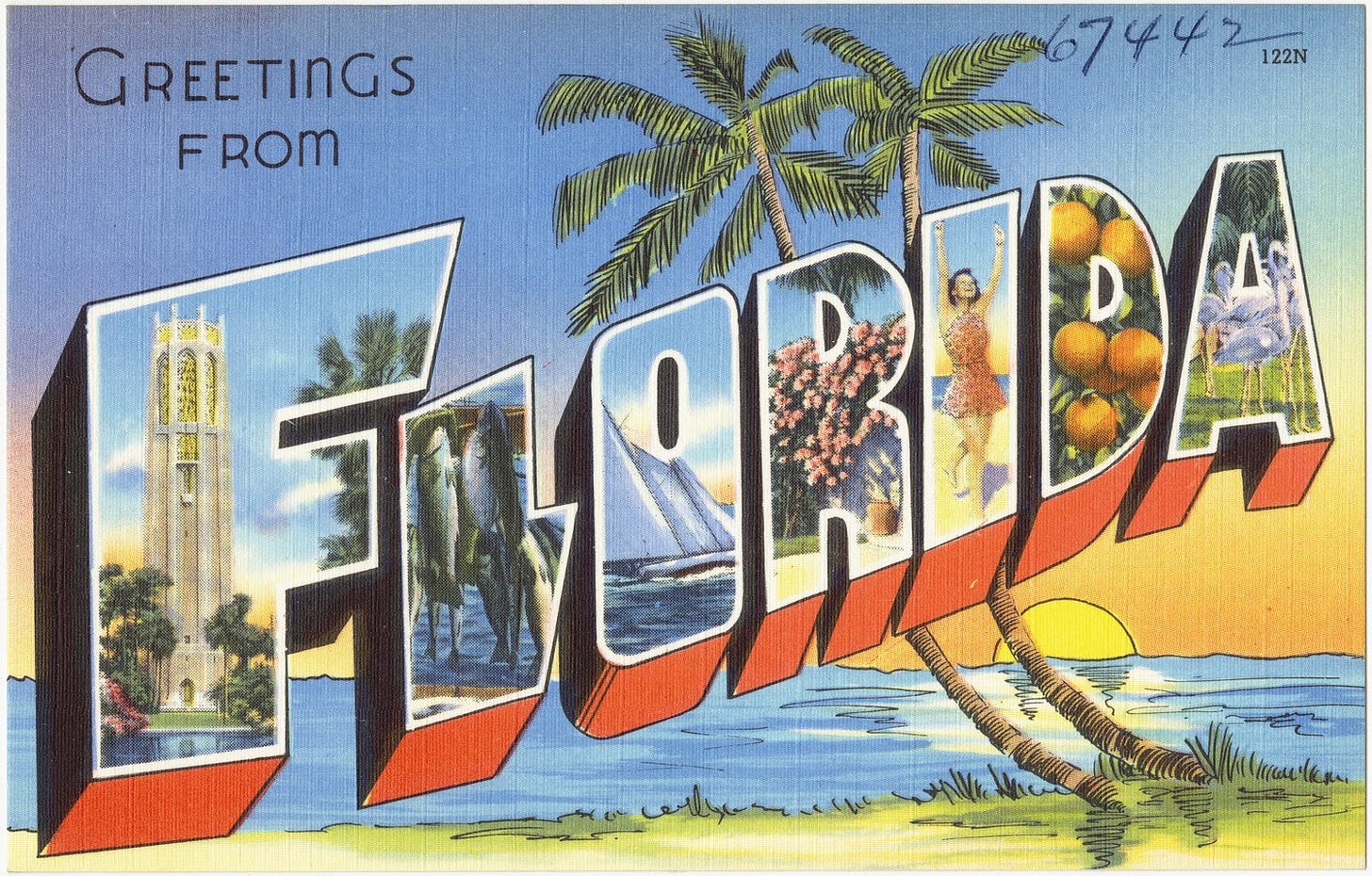
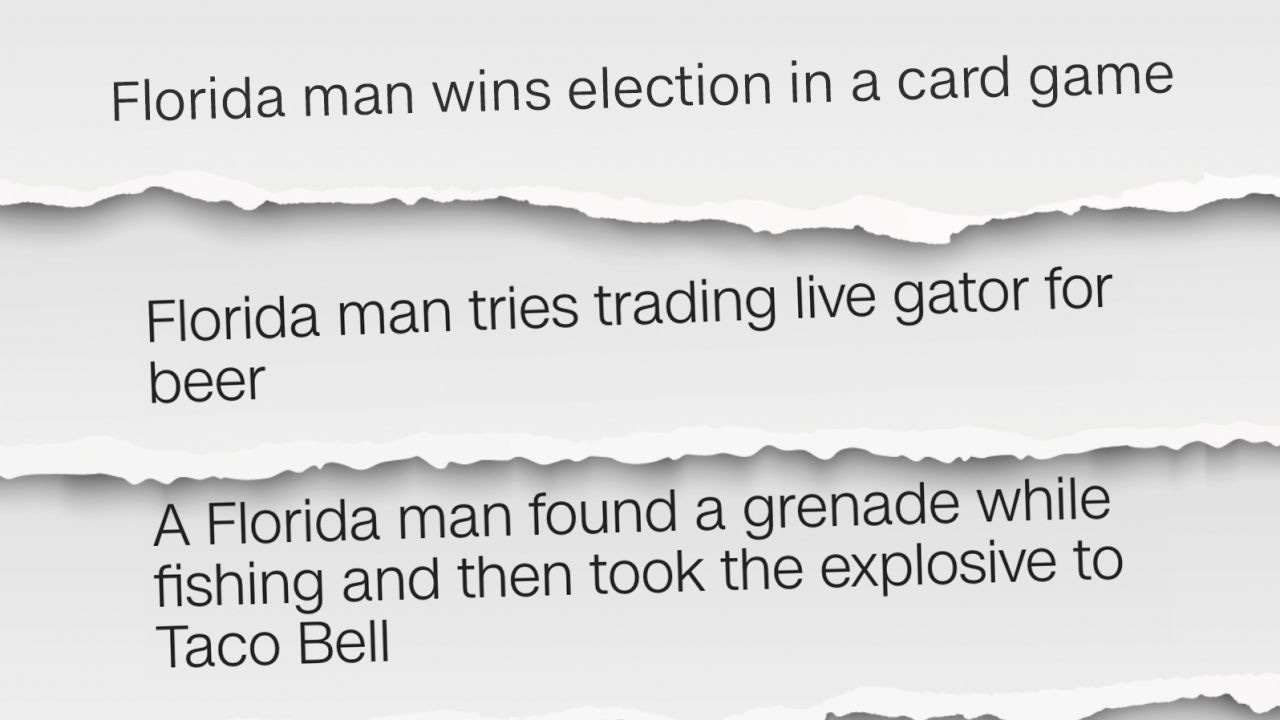
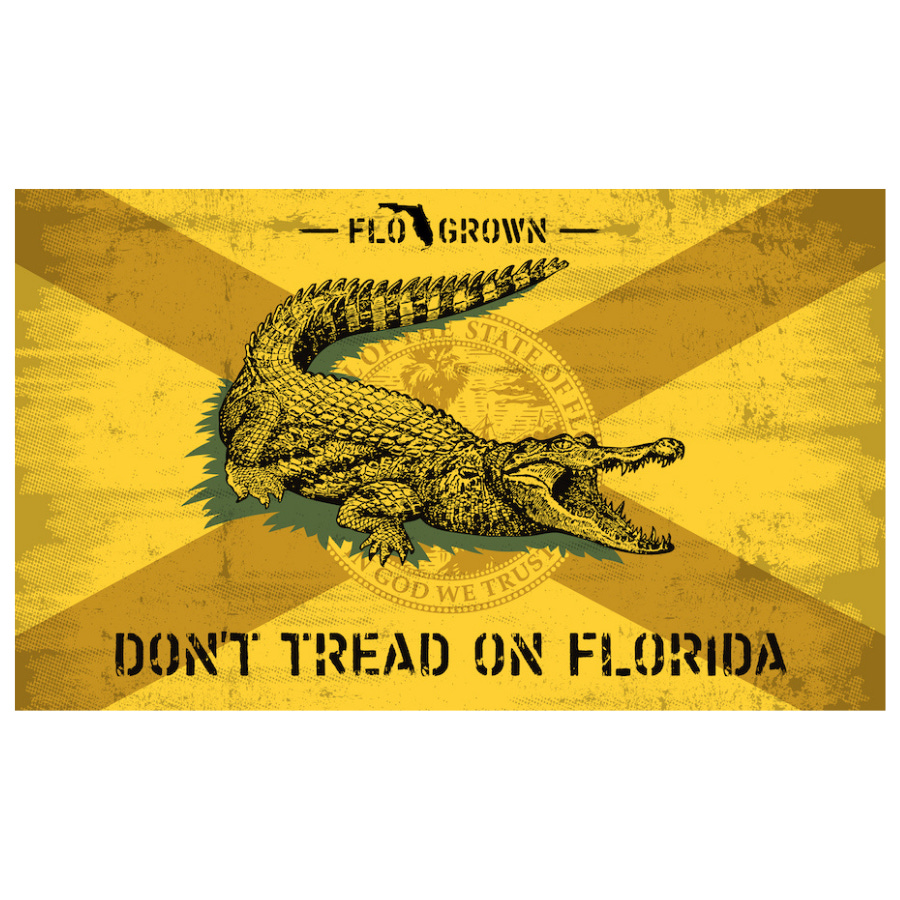
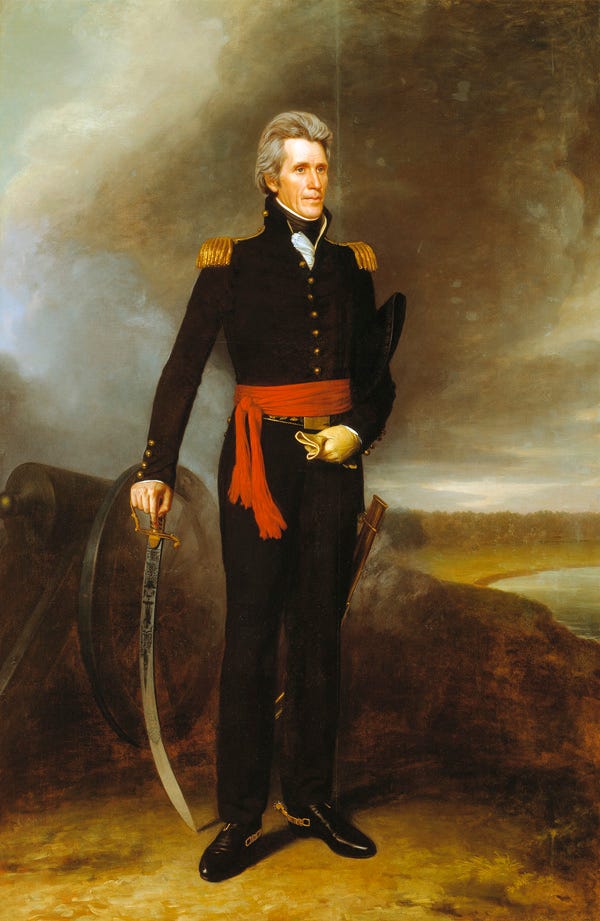
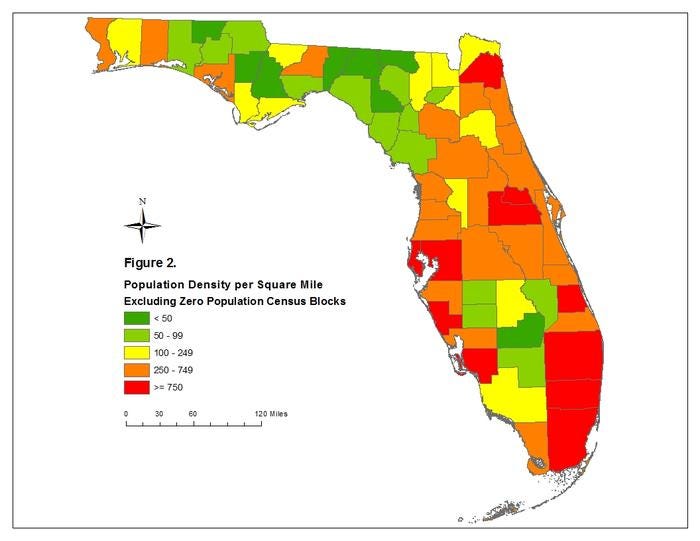
Very nice read, would definitely visit if I ever made it out of EUrope (not bloody likely though) on some trip or other. Your description of Florida Man and the prevailing attitudes made me feel right at home.
"The conversations one has with near strangers, which can seem mystifyingly involved to Yankees, are to the end of intelligence gathering, fortifying social norms, and furthering feuds, all of which hold Southern society together."
This is identical to the swedish countryside, especially the really far off parts like my literal neck of the woods (up to 70% of Sweden is forested nowadays, the rest is farmland or cities); "att slänga käft", literally "to throw jaw" meaning to be able and interested in having a chat with anyone is virtually a commandment. Feuds, non-violent most of the time, also exist. Some - between villages - have been ongoing since before the advent of king Vasa I five hundred years ago. Nowadays it's jeers and jokes 99.9% of the time but get them drunk and onto the dance-rotunda and you might see punches thrown.
Don't take this the wrong way but 50 people per square mile? That's clustered compared to here: fewer than 1 person per square kilometer (2.5 sq kilometers equals 1 sq mile) There are more moose than people out here in the foothills of the fjells. No 'gators though, but plenty of Northern Pike in the lakes, some growing close to two yards; taste like a plank of pine at that size, usually turned into fish-mush and baked as fishballs served with potatoes, fresh ground horseradish, green peas in butter and a white pepper sauce with a light lager to drink.
Anways, where was I? Oh yeah, right here! ;)
Now do one for all the other states. I double dog dare you.